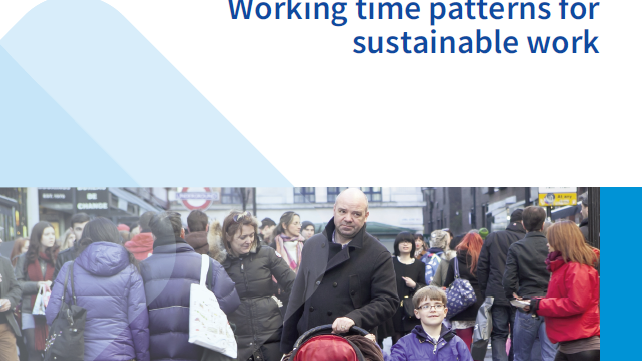Composition of NEETs in Europe
'NEET' is a broad label and includes young people in very diverse situations. This graph shows the composition of NEETs in the EU.
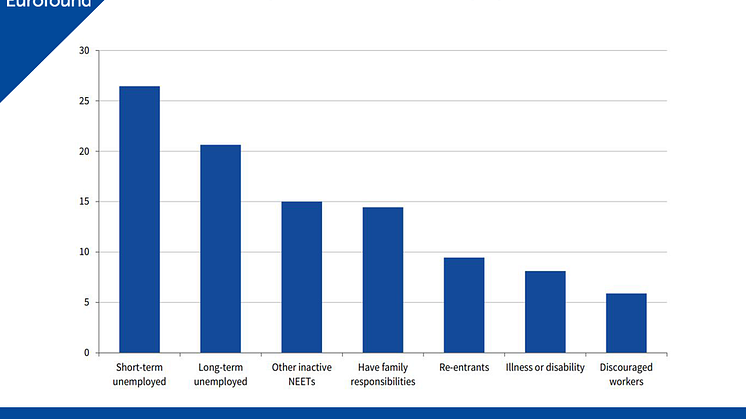
'NEET' is a broad label and includes young people in very diverse situations. This graph shows the composition of NEETs in the EU.

In this blog piece, originally published in Social Europe, Eurofound Research Manager Anna Ludwinek looks at the substantial section of the population that is not working and does not figure in unemployment statistics, but retains significant employment potential.

Young people are more affected than other age groups by long-term unemployment. While long-term youth unemployment is certainly not a new policy challenge for Europe, it now affects a wider range of young people than it ever did before.
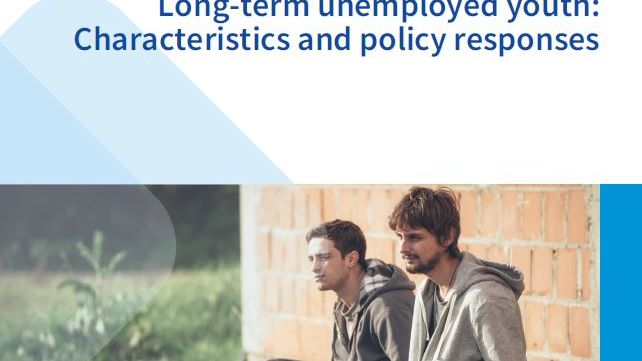
Eurofound’s European Quality of Life Survey (EQLS) 2016 shows that there are vast differences in reported abilities to make ends meet at household level in Europe.
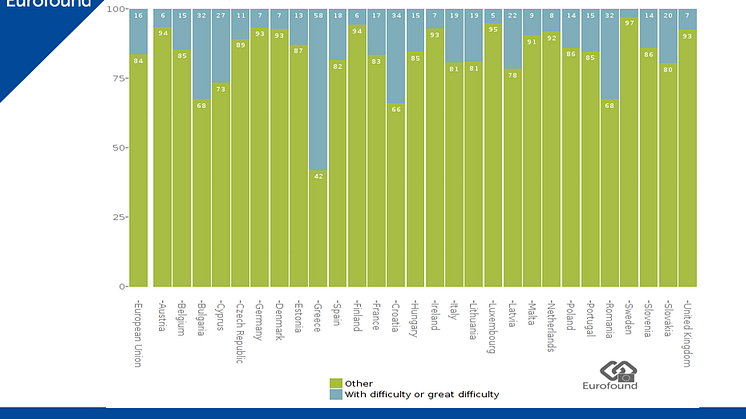
De Europese enquête over de levenskwaliteit van Eurofound geeft een uniek inzicht in de huidige levenskwaliteit van Europeanen.
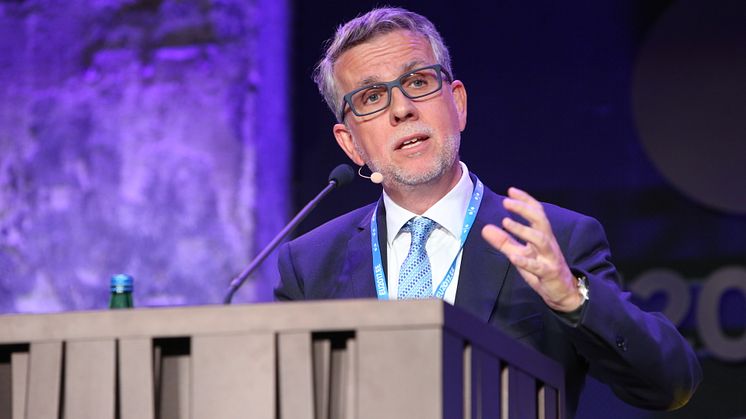
L’Indagine europea sulla qualità della vita (EQLS) di Eurofound fornisce una visione unica sull’attuale qualità della vita dei cittadini europei.

La encuesta europea sobre calidad de vida de Eurofound proporciona una visión única acerca de la calidad de vida actual de los europeos.

Die von Eurofound durchgeführte Europäische Erhebung zur Lebensqualität bietet einzigartige Einblicke in die aktuelle Lebensqualität der Europäer.

Eurofound will launch its new report on care homes for older Europeans at a special event on Tuesday 28 November 2017 in Europe House, Dublin.
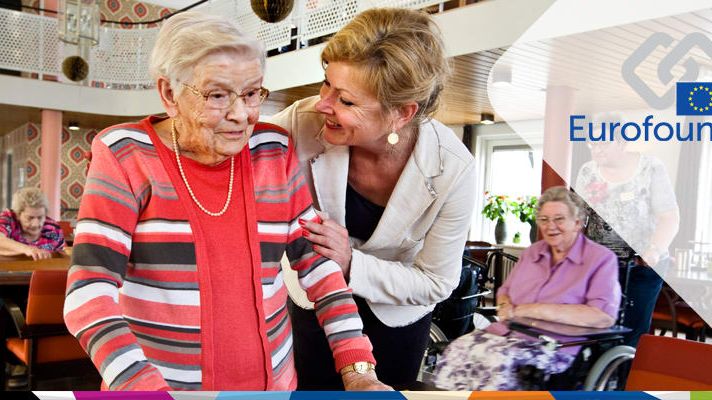
The Foundation Forum is Eurofound’s flagship event, aimed at reaching high-level policymakers in the field of social, employment and work-related policies. The event takes place in Dublin on 14-15 November 2017.
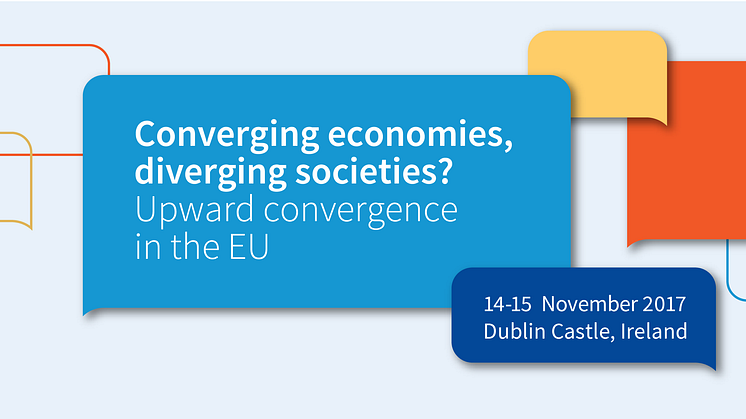
Friday 3 November is European Equal Pay Day. In the following blog piece Christine Aumayr-Pintar looks at the issue of pay inequality, contending that far from being a fair weather issue, addressing pay gaps should be an ongoing priority for Europe.
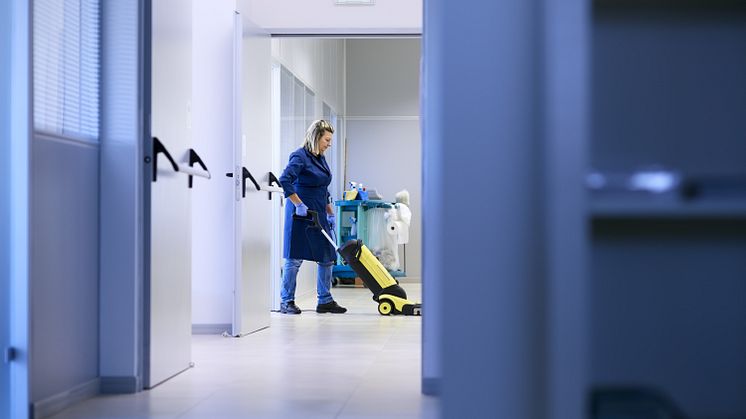
Unemployment in the EU continues to fall, however more than one in four of the EU’s working-age population are economically inactive; meaning they are not working, and are not seeking work or are not available for work.
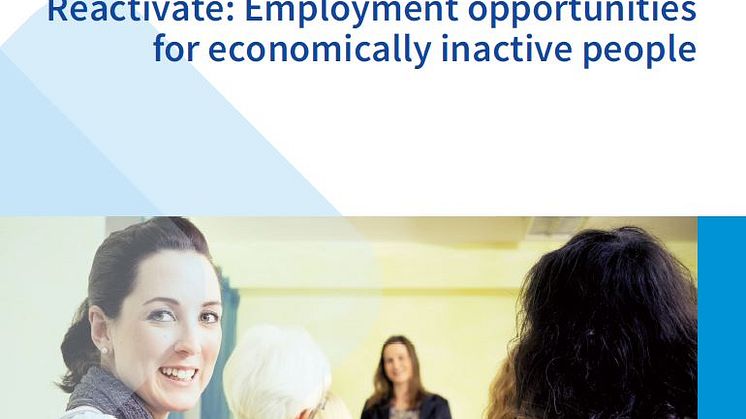
Working time is more than just clocking in and clocking out. In this blog piece, originally published in Social Europe, Jorge Cabrita looks at three reasons why working time in Europe should follow a life course perspective.

In this new blog piece Mathijn Wilkens looks at the multi-faceted nature of self-employment in Europe – from the entrepreneurial independent self-employed, to those that find themselves in a more vulnerable position.

Manufacturing is on the up in Europe. The latest data shows that, for the first time since 2005, the number of new manufacturing jobs announced in national media outstripped the number of announced job losses. In this blog piece Andrea Broughton and John Hurley take a closer look at the resurgence of the sector.
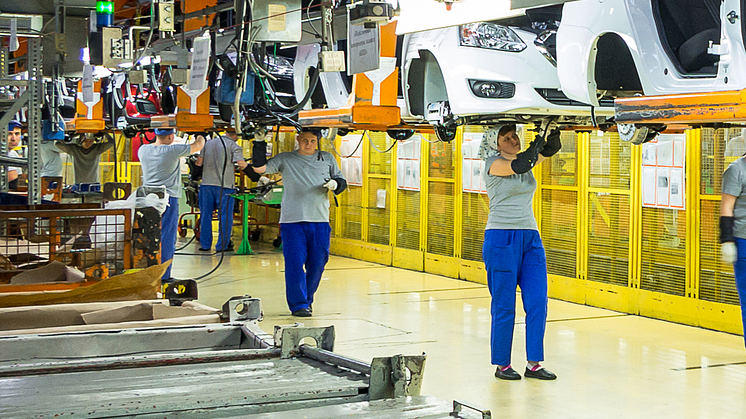
20 October is European Statistics Day, an initiative of the European Statistical Advisory Committee (ESAC) and with the support of the members of the European Statistical System and the European System of Central Banks.

In this blog piece, originally published in Social Europe, Eurofound Research Manager Daphne Nathalie Ahrendt looks at the increase in the number of workers that are at risk of poverty and are materially deprived following the 2008 economic and financial crisis, and evaluates the potential social ramifications for Europe.
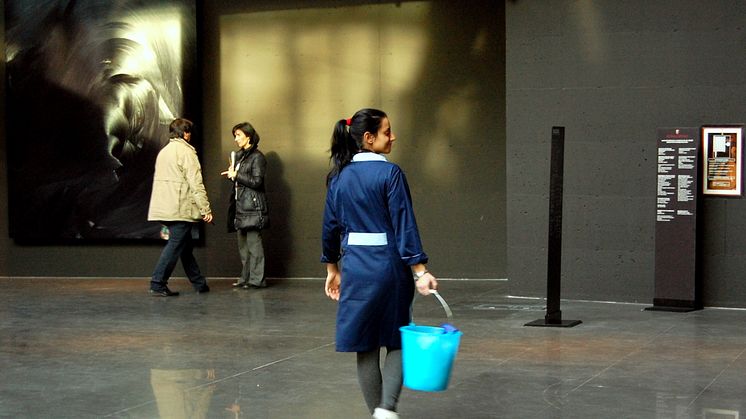
In the rapidly changing world of work, the traditional dichotomy of employee and self-employed is insufficient to capture the wide diversity of self-employed workers in Europe today. This report identifies five categories of self-employed, reflecting the wide-ranging attitudes, income levels, and health and well-being among this diverse group.

Working life in Europe is in a period of transition. Economic growth has picked up, employment continues to grow for the third consecutive year and unemployment rates – while still being above the level of 2007 in the EU28 - are generally in decline. However, Brexit and pay inequality present challenges for the future.
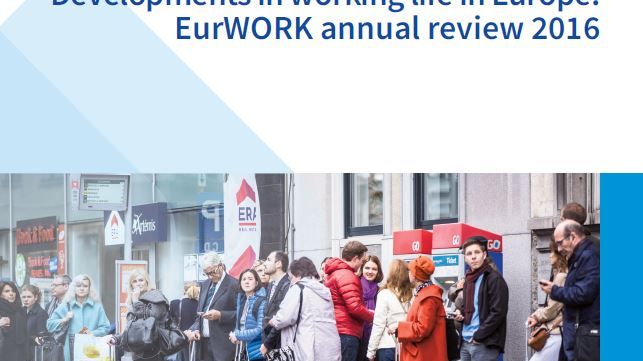
81% of workers say their working hours fit well, or very well, with their private life obligations. However men continue to have longer working hours (on average 6.5 hours per week more than women) and report more difficulties adapting working time to family life or other commitments.
